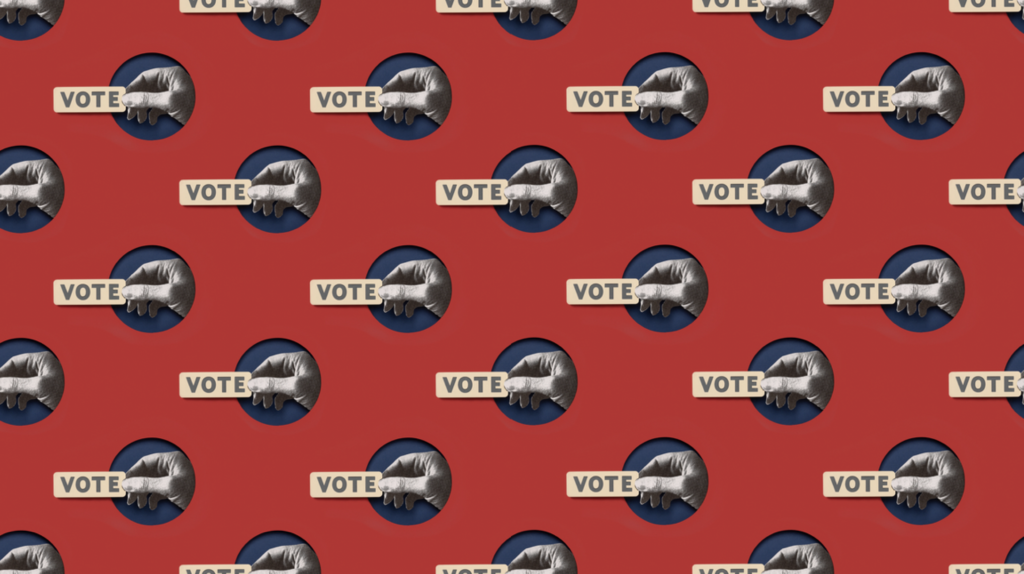Much of our research focuses on GenZ because they are the next up-and-coming generation that brands and marketers are trying to reach. But GenZ’s influence goes beyond just their consumer power.

GenZ’s are also coming into their political power. According to Pew, in this year’s presidential election, one in ten eligible voters are Zs, and that’s up from just four percent in 2016 – before many of them were old enough to vote. They’re also the most diverse generation, which has many Democrats hoping for their vote, as minority voters tend to vote for Democrats over Republicans. But as we’ve said before, Democrats would be short-sighted to think that Zs will automatically vote for them. Targeting the youth vote will be important for any candidate, and they’re not likely to be easily won over. Need proof? 49% of Zs told us in a recent survey that none of the 2020 Presidential candidates represent them*.
We like to call Zs the new Indie Pundits. They pride themselves on their independent thinking, and as such are reimagining the democratic system. They flip easily between liberal and conservative ideologies. And yes, they’re still young and developing their political views, but this generation in particular is more fluid and open-minded than the generations that came before them. Even the conservative voters among Zs are generally more accepting of the ways American society is changing, from same-sex marriage to increasing racial and ethnic diversity. Why? Zs are more likely to personally know someone who identifies as LGBTQ, or is undocumented or of a different race or ethnicity. Social media has also helped break down barriers and as digital natives and content creators themselves, Zs are adept at filtering out misinformation online.
So what does this mean for the 2020 race? 72% of Zs told us they’ll vote based on the candidate they like rather than the candidate’s party*, but at the end of the day, we’re still in a two-party system. There won’t be any candidate in particular who will appeal to the fluidity Zs are craving. All of the current candidates for president are white septuagenarians – it’s unlikely many Zs will identify with them or feel particularly passionate about them. And while 73% of Zs told us being politically engaged is more critical today than ever before, almost the same number of them (69%) told us today’s political polarization turns them off from politics altogether*.
While Zs could command a significant part of the overall electorate, the biggest question is – will they? Historically, turnout among youth voters has been lacking. And yes, Zs turned out in big numbers for the 2018 midterms, but those “big numbers” were still only 36%. To put that in context, in the 2016 election, older voters (Boomers and Silents) only made up 43% of eligible voters, but they cast 49% of the ballots. The takeaway? Turnout really does matter. If Super Tuesday is to be any indication, exit poll analysis from Tufts University showed youth turnout to be in the 5 – 19% range, far lower than the turnout for the midterms.
Come November, Zs have the power to make a large impact on this year’s Presidential election. It’s up to them – and the candidates courting them – to show up and take that power.
*Data source: Front Row Insights & Strategy, Nationally representative survey of N=1,030 respondents ages 13-24 in the U.S. The survey was conducted in February 2020.






